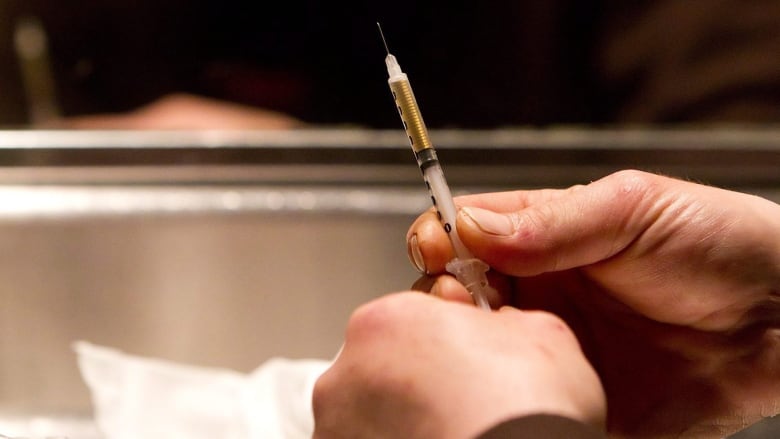Overdose deaths in B.C. up 88 per cent from this time last year
The latest report show the number of deaths in June declined but is still dramatically higher than 2016

Numbers released Friday from the B.C. Coroner's Service show June had the lowest number of overdose deaths in 2017, but the total number of people who have died this year is still up 88 per cent from the same period in 2016.
Between January 1andJune 30,2017, 780people died compared to 414 during the same period last year.
In the month of June, 111 people died, which is an average of 3.7 deaths aday. While that's the lowest number so far this year, health officials say it's not a sign the overdose crisis is slowing down.
"Even though these months' numbers are somewhat lower than previous months, it would be premature to take any comfort from that, " said Dr. Perry Kendall, B.C.'s chief medical health officer.
"It may just be a statistical blip, if you look at the month-by-month numbers."
Cocaine and using alone
Kendall said health officials are having more success reversing overdoses when another person is around, adding that regions like the Fraser Health Authority are seeing fewer ER visits.
The persistent problem is those whouse drugs alone.
The numbers show nearly 90 per cent of fatalities have taken place inside, and more than half of those, inside a private residence.
"We've had people come home during their lunch break to use cocaine and then found dead when they didn't show up to go to work," said Chief Coroner Lisa Lapointe
"The message is anybody is at risk."

Cocaine remains the highest risk drug, according to the B.C. Coroners Service. Between 2015 and 2016, it accounted for nearly 50 per cent of deaths.
Fentanyl was also detected in 78 per cent of drugs involved in fatal overdoses.
New investigation process
The B.C. Coroner's Service is trying to collect more data on victims of overdoses and their personal circumstances in order to better understand the crisis. In December 2016, it launched a new drug investigation team.
"We developed an enhanced investigation protocol for drug overdoses, so any suspected drug overdose death, we're collecting 11 pages worth of data, and the coroners are now asking a number of additional questions," said Lapointe.

Those additional questions which might be posed to family members range from medical history, treatment efforts and previous trauma.
"What we really hope to do is present the provincial health officer and health authorities and those in positions to really implement meaningful solutions ... with some really clear patterns and trends in the population that'sdying,and, presumably, that's the population that's most at risk."












_(720p).jpg)


 OFFICIAL HD MUSIC VIDEO.jpg)
.jpg)



























































































